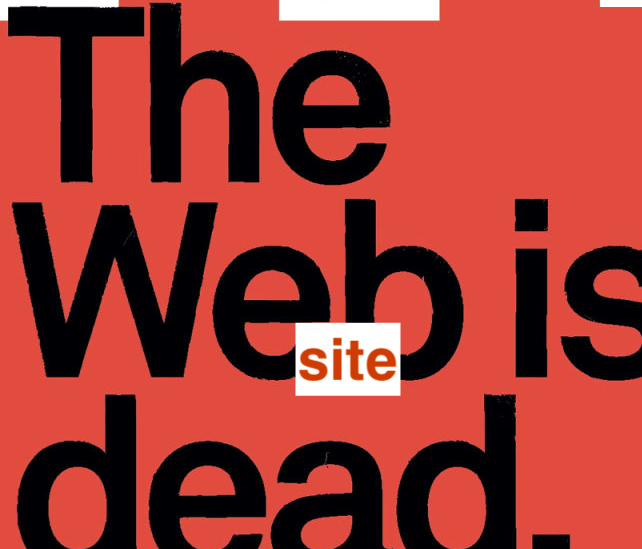noun:
"destruction of the natural environment by deliberate or negligent human action"
Prof Herman Daly is one of the founders of the emerging philosophy of ‘ecological economics'. He has long argued backed by tomes of scientific evidence, that to achieve genuine sustainability, the global community should be transitioning to a ‘steady-state’. A new paradigm based on ecological principles derived from "biophysical reality". Shifting our focus from infinite growth to a finite reality. A reality which is telling us that mainstream economics and industry is not only unsustainable, but is also responsible for ecocide. Daley's brave new philosophy directly exposes the contemporary roots of humanity’s self-destructive development trajectory. However it seems that verdict is not enough to convince the leaders, economists, capitalists, futurists, environmental organizations and mainstream media. After all, we as a species have a biological disposition, to expand, to constantly grow, even dangerously beyond the available resources and limits imposed by the living planet.
The dominant narrative of our techno-industrial society is neoliberal economics, for everyone and everywhere. The underlying theme or rule which drives most of global development. Neoliberalism and mainstream science has created a seriously harmful construct, that separates the economy from the environment. It considers the global economy to be independent of environment and the living planet. One of the mental tricks that we apply to perpetuate this fallacy, is to imagine substitutes for any resource that is naturally limited (example - wood can be replaced with coal can be replaced with oil can be replaced by nuclear can be replaced by green energy...) Replace meat with vegan, replace halogen bulbs with LED, replace plastic with eco-plastic? That a new kind of car or washing machine or tomato or ice-cream can save the world. Well, that's bullshit to even begin with. This essay is a response to the new global mantras of sustainability as ways to combat climate change. Contrary to the massive green-washing of our society, scientific research and data reveals our true collective nature, as a parasitical species. Yes we are very clever, yet not nearly smart enough!
"Economics’ by contrast, is pure abstraction" says Prof Emiretus William Rees in his recent essay. Rees argues is that we have fooled ourselves, for centuries, by believing that our ingenuity and technology can help us overcome any shortage or misgivings of nature. Standing on that very anthropocentric mantle, for generations we have derived most of our modern economic thinking and action. Hence, on one hand economics is pure abstraction and on the other we have limited resources, finite opportunity and a whopping rise in population and industrialization. With this universal model, moral and ethical considerations are irrelevant - damage to ecosystem, wild animals, forests, rivers, oceans, lakes and communities are mere "externalities". Ideas, policies, resources, land, labor and future plans have been designated to perpetuate that very economic model allover the world. Such cunning or vicious human exceptionalism can only last for a short while.
A vast majority of politicians, economists, scientists and policy makers believe that the economy can "continuously grow and transition" by extracting new resources and energy, and at the same time use the earth as a "sink hole to dump all the waste". That faulty vision is also mirrored by the biggest risk management corporations, like Re Swiss and the World Economic Forum, when we hear Veronica Scotti say "It is incumbent upon governments to take rapid steps to ensure these policies are
both equitable and firm - so that all sectors of the economy and segments
of the population can experience an orderly and bona fide transition as soon as
possible..." Remember that old Latin phrase, 'Cui Bono' - who gains? The usefulness or utility when estimating the value of an act or policy. Hence those policies and sweeping changes may never be truly equitable nor future-proof.
Are we constrained by the limits of nature? Many people will disagree and many more will turn to technology, energy and material benefits to ignore the point altogether. The prevailing logic is based on economic growth that can continue infinitely, propelled by boundless technology. The world economy is growing still, at a minuscule 2% presently. It's hilarious (if not abject) when we hear renowned business gurus like Prof J. Simon (University of Maryland) exuberantly declare that "we have in our hands now, the technology to feed, clothe, house and supply energy to an ever growing population, for the next seven billion years!" (2009). Later he redacted the preposterous claim by saying "sorry... it's seven million years". Less we forget the reality, where every year the number of refugees increases by millions and 34% of children under the age of ten, do not receive sufficient calories needed per day (WHO 2019). Even if one imagines endless growth with the given power of technology, we are bound to hit a wall, a collapse created by our own counteractions.
Scientists from the 1970s had begun to predicate collapse and economic slowdown. Human population, feeding off the planet has reproduced very very rapidly over the last 300 years, which is not something normal nor great, when we see the past 10,000 years of history. A stunning fact, that we reached the 7.8 billion figure in less than 300 years, while remaining less than 1 billion for more than 80,000 years (first footprints of human colonization). Clearly a humongous overshoot! At the cost of displacing and killing many many species. As Prof William Rees states "Continuous population and economic growth is an anomaly. The growth spurt that recent generations take for granted, is the single-most abnormal period in human history."
Economics, business interests and energy production (green or not) is actually divorced from biophysical reality (the environment and it's balance). Mainstream environmentalism, it's mantras and policies have little to say about the threshold, interdependence, balance and limits between human actions and the living planet. Instead they heckle us with images of poor helpless turtles, screwed over by our discarded plastic trash! What's really pathetic is donation based environmentalism, while carrying on with "business as usual". Climate summits (COP, UN, NRDC etc) tacitly ignore the emerging incompatibility between current economic models and the host (ecosystem). Why are we using up all our resources so rapidly, to continue economics, technology and industry? It's becoming apparent that we as a species, marching out to make "green new deals" with each other, are ignoring (in denial of) reality and the biophysical course of nature. "Not only have many industries declined or collapsed altogether over centuries, but there has been a catastrophic loss of wildlife around the world... Total extinction was only avoided in few cases because it became uneconomic to hunt the last remnants of a once thriving species. The result has been ever falling diversity and the creation of an increasingly impoverished world..." writes Clive Ponting in his book New Green History Of The World.
Humankind is extremely clever, manipulating the physical world in amazing ways, yet not nearly smart enough to rescue itself from the predicament that we have given birth to, by manipulating nature and the ecosystem. Almost 86% of wild animals and their corresponding habitats were wiped out by human colonization and actions in less than 3000 years. Perhaps human beings are not primarily rational as a species. Perhaps we are here for a limited period of time. Particularly extraordinary yet momentary within the long evolution of the planet. Even if that point of view seems negative or stoic, we persist, we hope and are compelled to re-adapt and revise. Perhaps fewer number of human beings will have a better chance at long term survival. Industrial civilization is a form of ecocide. It is discounting the future, if not erasing it altogether for future human beings. The more we invest into it, the more we overshoot, perhaps already past the tipping point.
"All of the technological solutions being put forward... be it solar, wind, biomass, green growth, circular economy etc etc - they are meaningless. These are big ambitious fantasies, to lull the vast majority of people into confidence, that we can move forward towards a secure future. That change, however amazing in scope, cannot combat the biophysical reality of nature - which we are experiencing via climate change, pandemic, loss of birds, insects, fish, wild animals and habitat with global warming" highlights Prof William Rees in a recent lecture. Climate change is a symptom and not the root cause, that we are out combat. Mentally how we prepare ourselves for the future is critical and as vital to think (and act) beyond what is being offered to us, by economics, neoliberalism, the dominant culture and it's green colored options. Individually or collectively, we definitely need to step out of the anthropocentric mentality (a trap) and align ourselves with the reality of nature unraveling around us... For good or bad, things are beginning to get really interesting!































0 -